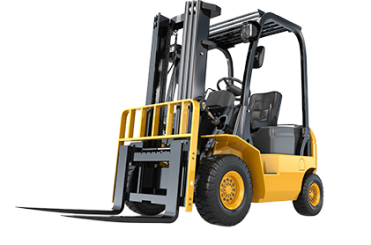Crucial Tips for Handling Heavy Devices Rental Arrangements and Logistics Effectively
Successfully taking care of heavy equipment rental contracts and logistics is crucial for the success of any type of job that depends on these sources. A comprehensive understanding of rental terms, paired with accurate assessment of devices requirements, lays the foundation for favorable settlements. Collaborating transportation logistics and intending for recurring upkeep can dramatically lower unanticipated prices and hold-ups. Nonetheless, the intricacies of these elements often present challenges that require strategic insight. What are the vital factors to consider that can transform these potential pitfalls right into chances for efficiency and cost-saving?
Understand Rental Terms
Understanding rental terms is vital for effective hefty tools monitoring. The rental duration defines the timeframe for which the devices is rented, affecting budgeting and task timelines.
In addition, it is crucial to comprehend the maintenance responsibilities detailed in the arrangement. Commonly, rental firms keep the tools, yet recognizing that is accountable for regular checks and fixings is essential to stop operational disruptions. In addition, terms might consist of stipulations worrying liability for problems or burglary, which can have serious monetary ramifications if not correctly understood.

Assess Equipment Needs
Assessing equipment requirements is an essential step for any kind of task supervisor intending to enhance source appropriation and enhance functional efficiency. This procedure includes an extensive assessment of the project needs, including certain jobs, timelines, and the kind of equipment necessary to attain preferred results.
Begin by recognizing the range of the task and the jobs that will be performed. Take into consideration factors such as the terrain, the scale of operations, and any type of possible obstacles that can affect tools option. Engaging with team members who will certainly run the equipment can supply beneficial understandings into practical requirements and choices.

Following, review the ability and capacities of readily available tools alternatives. It is important to match the right equipment to the tasks at hand, guaranteeing that it can deal with the expected work without endangering safety and security or efficiency.
Furthermore, consider the rental period and frequency of use. Comprehending these aspects can aid determine whether leasing or buying is the most cost-effective solution. By conducting a detailed analysis of tools requirements, job supervisors can make educated choices that lead to improved productivity and lowered functional expenses.
Negotiate Effectively
When the tools demands are plainly determined, the following step entails effective arrangement with rental business to safeguard positive terms. A well-prepared negotiation approach is crucial for accomplishing the most effective feasible deal. Begin by looking into different rental companies to recognize their prices frameworks, stock availability, and online reputation. This understanding will empower you throughout arrangements and help you develop sensible assumptions.
When approaching the arrangement table, be clear about your requirements, including the type of equipment, rental duration, and any extra services you may need. This openness allows rental firms to provide tailored services that can fulfill your specific demands (heavy equipment rental). Don't hesitate to request for price the original source cuts, specifically for lasting leasings or bulk orders, as numerous companies want to offer giving ins to protect bigger contracts
These elements can considerably influence the overall expense and should be clearly outlined in the rental contract. Ensure that all agreed-upon terms are documented More Info in creating to avoid misconceptions and protect your rate of interests throughout the rental period.
Coordinate Transportation Logistics
Working with transport logistics is an important aspect of handling hefty equipment rental contracts. Reliable transportation ensures that devices is delivered in a timely manner and in optimum condition, thereby reducing downtime and enhancing task effectiveness. To achieve this, it is vital to develop a detailed logistics plan that describes the whole transport procedure from pick-up to delivery.
Begin by evaluating the certain transport demands based upon the kind and size of the equipment involved - mini excavator rental. Involve with dependable transport carriers that concentrate on hefty tools to guarantee they have the needed expertise and equipment, such as flatbed vehicles or specialized trailers. Review factors such as weight restrictions, course constraints, and called for licenses to stay clear of unanticipated delays
Furthermore, preserve open interaction with both the rental business and the transportation provider to work with routines efficiently. By meticulously collaborating transportation logistics, you can promote the honesty of your rental agreement and facilitate smooth task execution.
Prepare For Upkeep and Support

Additionally, it is important to interact directly with the rental company relating to upkeep obligations. Some agreements may consist of upkeep as part of the rental service, while in various other situations, the onus may drop on the tenant. Comprehending these terms will aid stay clear of unforeseen costs and liabilities.
Furthermore, having accessibility to technological support can be important. Ensure that the rental firm uses 24/7 support or an emergency contact, enabling quick resolution of any tools problems. Training your group on proper tools use and regular checks can also significantly improve operational effectiveness.
Conclusion
In conclusion, reliable management of heavy devices rental agreements and logistics hinges on a detailed understanding of rental terms, accurate analysis of equipment requirements, and adept settlement skills. Highlighting clear interaction with all stakeholders continues to be crucial in navigating the complexities of devices service and logistics management.
Successfully taking care of heavy equipment rental contracts and logistics is crucial for the success of any job that relies on these sources. By extensively reviewing and understanding these rental terms, companies can make informed decisions, mitigate risks, and ensure that their hefty devices administration lines up with project goals and financial restraints.Coordinating transport logistics is a vital aspect of managing heavy tools rental arrangements.In verdict, efficient administration of heavy equipment rental agreements and logistics joints on a thorough understanding of rental terms, precise assessment of equipment needs, and experienced arrangement abilities. Stressing clear interaction with all stakeholders stays important in navigating the intricacies of devices rental and logistics management.